Best TV 2026: experts select the year's top TV buys
The pick of the very best TVs available right now

- T3 Top 3
- 1. Best TV overall
- 2. Best OLED TV
- 3. Best value
- 4. Best sounding
- 5. Best with Ambilight
- 6. Best under £1,000
- 7. Best premium big screen
- 8. Best for bright rooms
- 9. Best for subscribers
- 10. Best on sale
- 11. Best design
- 12. Best 8K
- Honourable Mentions
- How we test the best TVs
- How to choose the best TV
- FAQs
- Reviewer Panel
If you're shopping for the best TVs, then you're looking for a viewing experience that's exceptional – not just 'very good'. Everything needs to add up to brilliance, including the picture quality, the audio performance, the on-board software, and more.
I've taken a look at all the top-rated TVs on the market right now, as well as the extensive T3 review library, to select the television sets that can't be beaten: if you want to get the maximum bang for your buck, then these are the models to go for. The Samsung S95F is our current top pick.
You'll find 12 sets in this list in total, all of which excel in multiple areas, whether it's the quality of their audio or the flexibility of the connection options you get. With price points ranging from low to high – partly dictated by size, of course – you're covered no matter what your budget is.
There should be something for everyone in this selection, no matter the budget you're working with, or the features you need. You'll also find a variety of screen tech on show here, including OLED, QLED, and Mini-LED – and I'll explain how they differ in the FAQ and advice sections at the end of this guide.
T3 Top 3
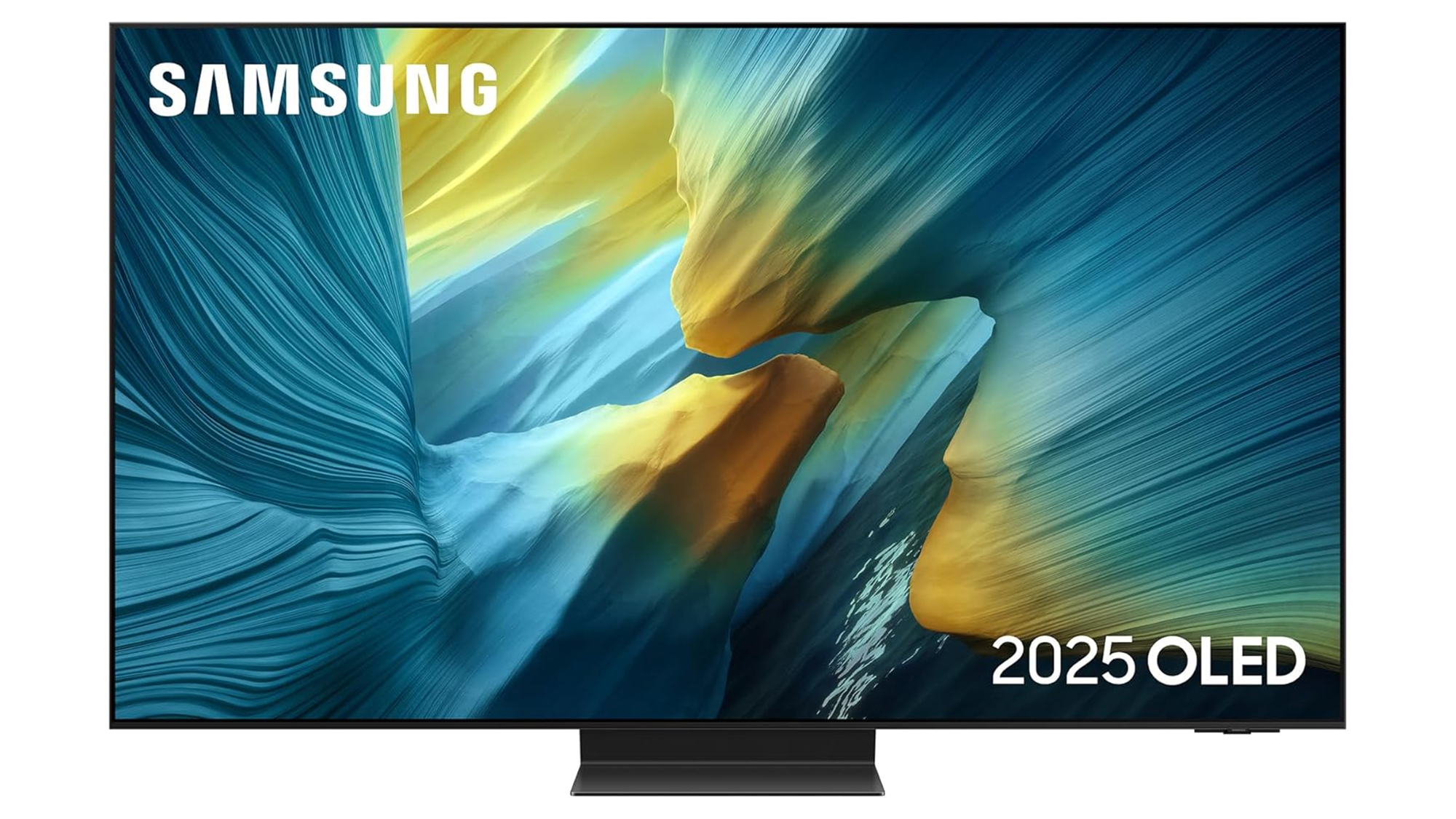
The Samsung S95F excels in all the key areas that matter, and was a worthy inclusion for our T3 Awards TV list. You'll find that it delivers stunning pictures, whatever kind of content you're watching, and it's all wrapped up in a sleek and stylish frame. Even the integrated audio impresses.

This is another astonishingly good TV from LG, in an astonishingly good series of OLED models. The LG OLED G5 has it all: a super-bright, super-detailed picture, plenty of features for everyone from gamers to movie fans, and on-board software to deliver all the streaming goodness you need.
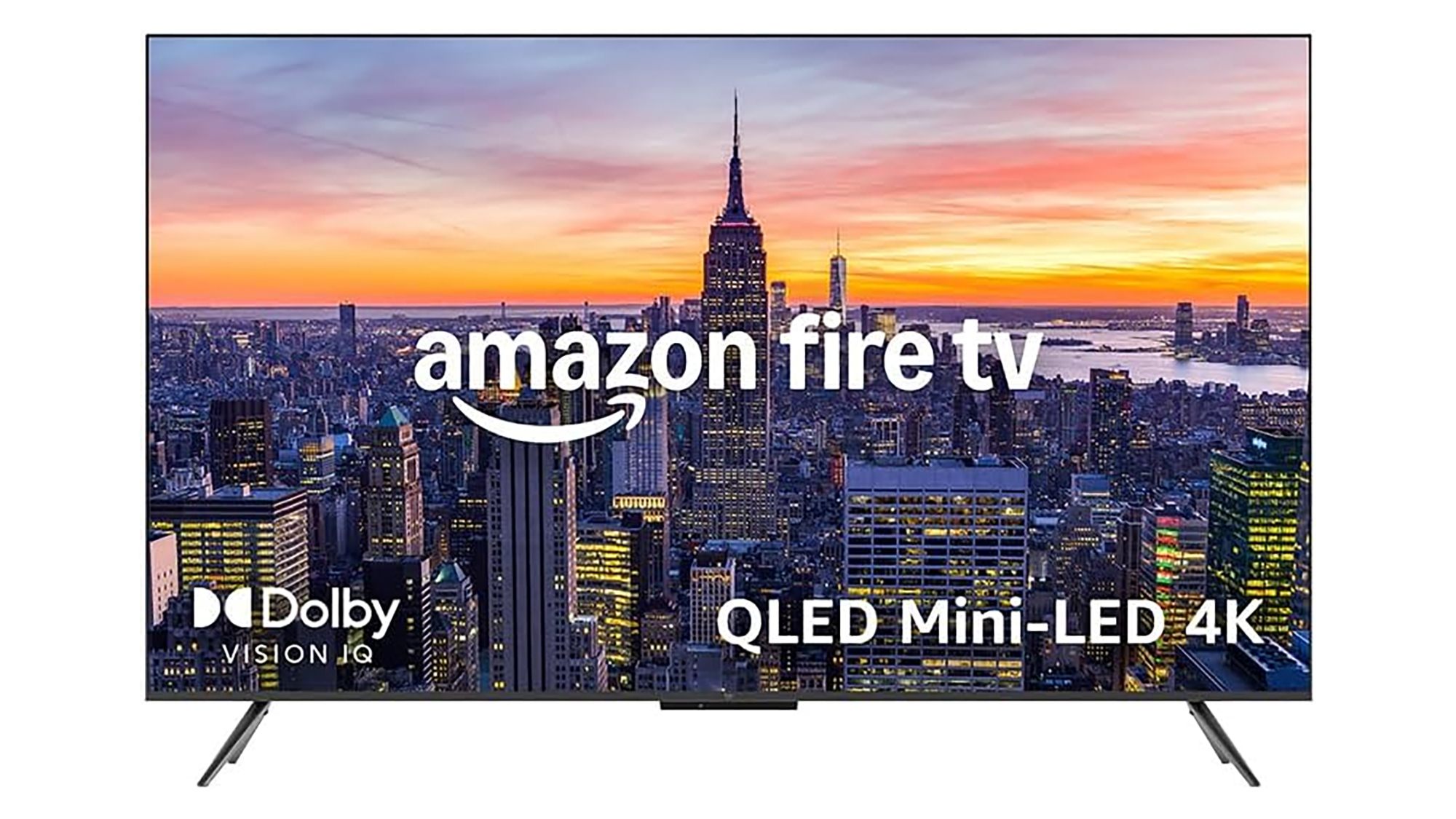
If you want to make sure you're getting the most bang for every buck you're spending, then the Amazon Fire TV Omni Mini-LED 4K is absolutely a television we can recommend: it comes in at an attractive price point without making many compromises at all in terms of picture or features.
Update 31 December: Refreshed for 2026. Update 14 July: We've brought our guide to the best TVs right up to date, with the star sets from the T3 Awards. Keep checking back for changes as more models are launched in the coming months.
The best TVs in 2026
Best TV overall
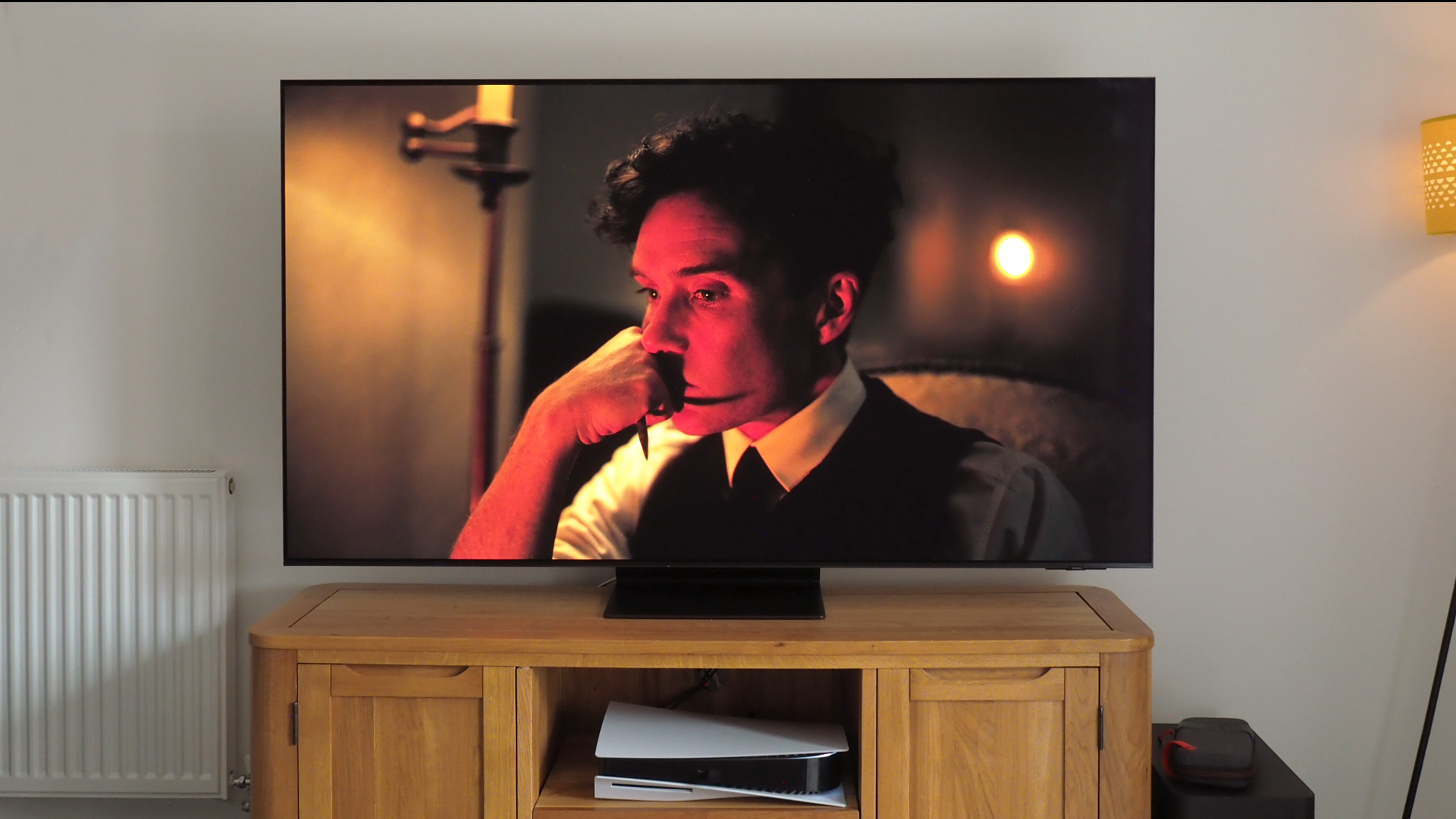
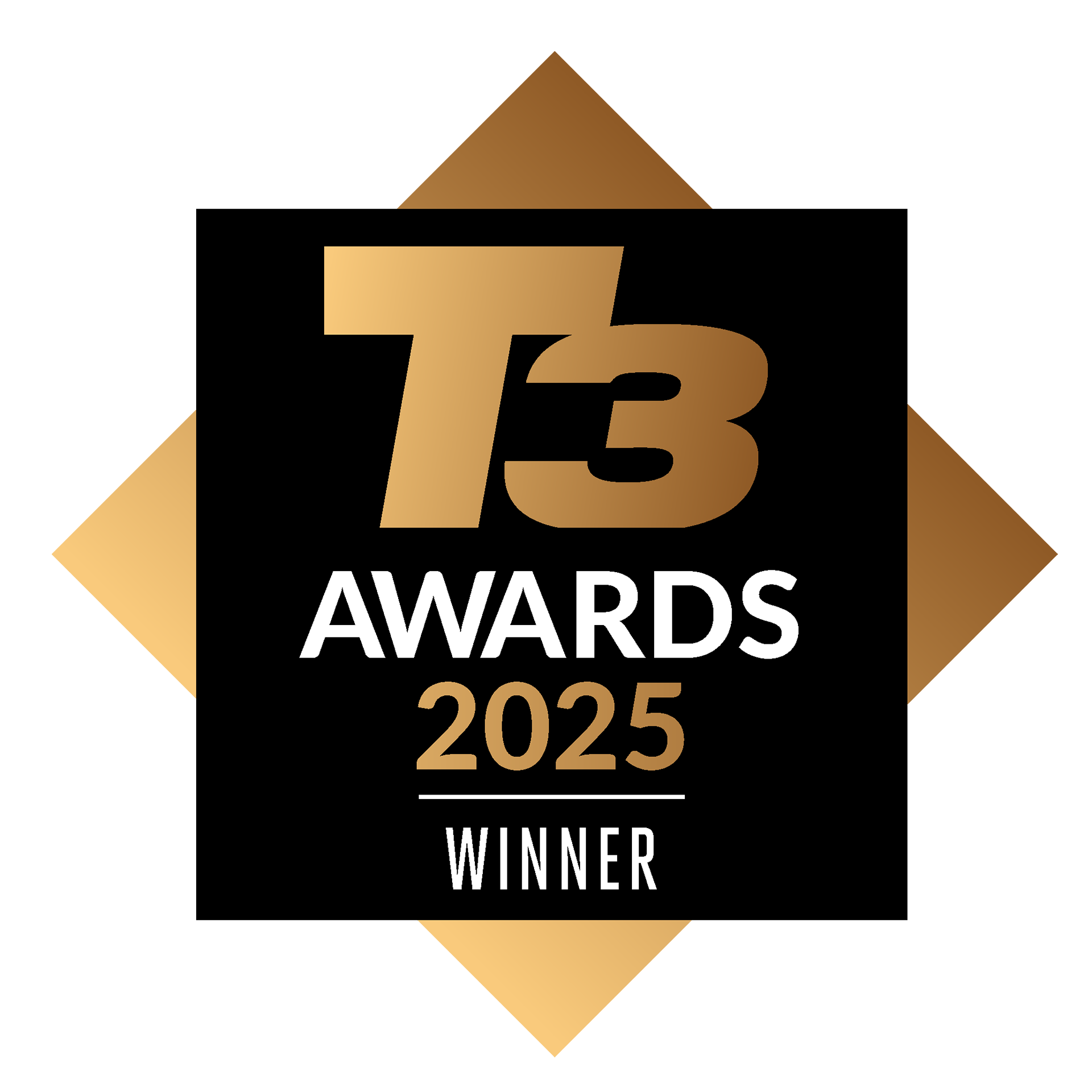
Specifications
Reasons to buy
Reasons to avoid
There's so much that's good about this TV that it's difficult to know where to start, but our full Samsung S95F review will give you the full rundown of the multiple strengths of this model – and there really aren't any major weaknesses to talk about.
The pictures produced by the Samsung S95F are bold and bright and punchy, while fast motion, wide colour variations, and lower-resolution content are all handled superbly. There's also some great anti-glare tech here which functions really well.
Whether you're looking at sports, games, or movies, this is a television that'll wow you, and we think it's the best option around right now for most people. It also comes with four HDMI 2.1 ports, with support for 4K/165Hz pictures that will interest gamers.
Best OLED TV
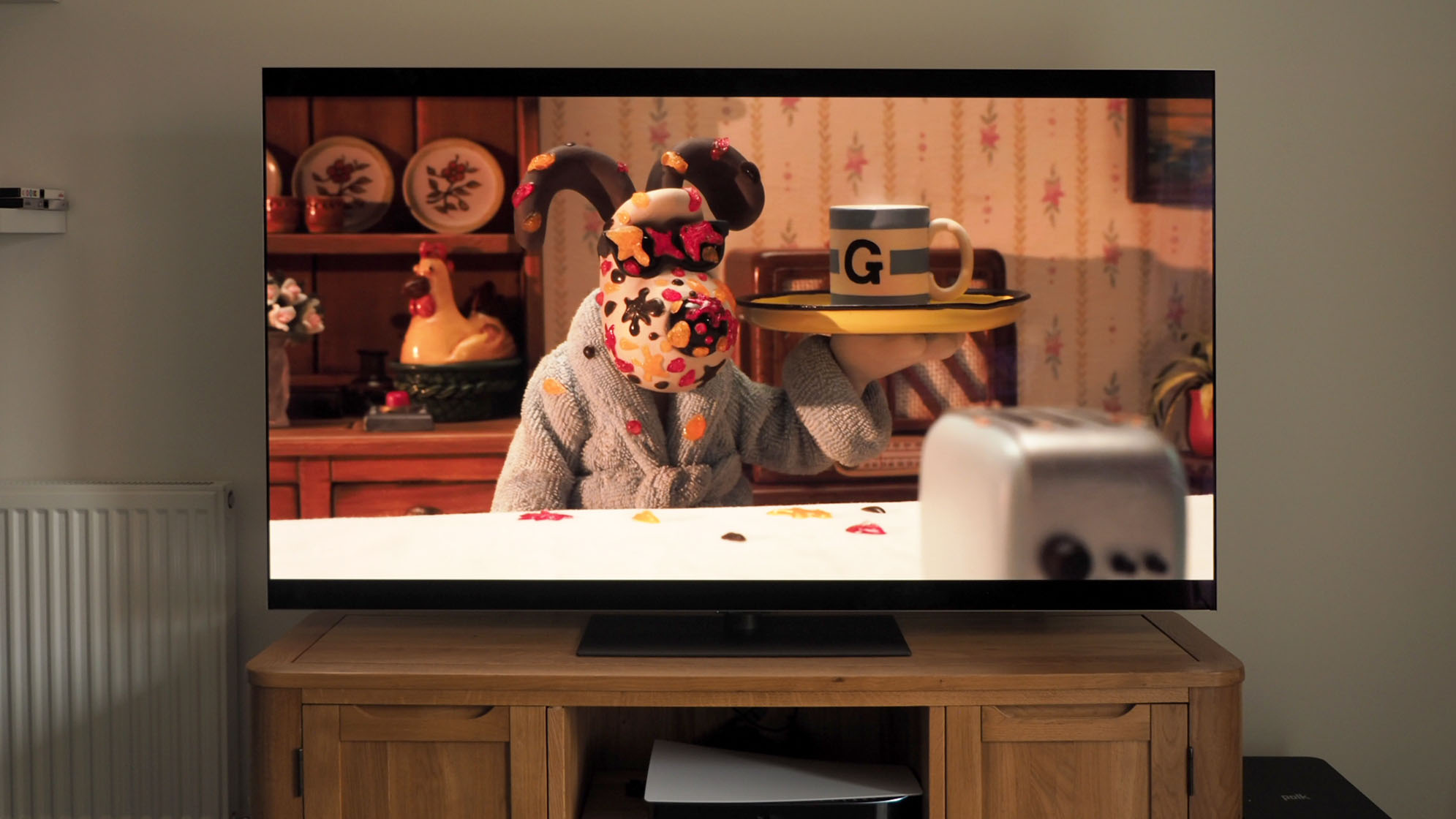

Specifications
Reasons to buy
Reasons to avoid
The LG OLED G5 comes from a very strong series of models put out by LG, and it's the best yet. In fact, it's one of the best sets that our review team has ever seen, excelling in just about every area that matters, with very few negatives to really talk about.
In our LG OLED G5 review, we enthused about this being "the pinnacle of classic OLED performance", with a "generational leap in brightness" (often a worry with OLED sets). In our opinion it's the flagship OLED to beat, and the best OLED in our list overall.
The four HDMI 2.1 ports will please home cinema enthusiasts and gamers alike, while LG's webOS software continues to improve. If we're being very picky, some of the AI implementations are a bit clunky, and you'll probably want to invest in a soundbar.
Best value
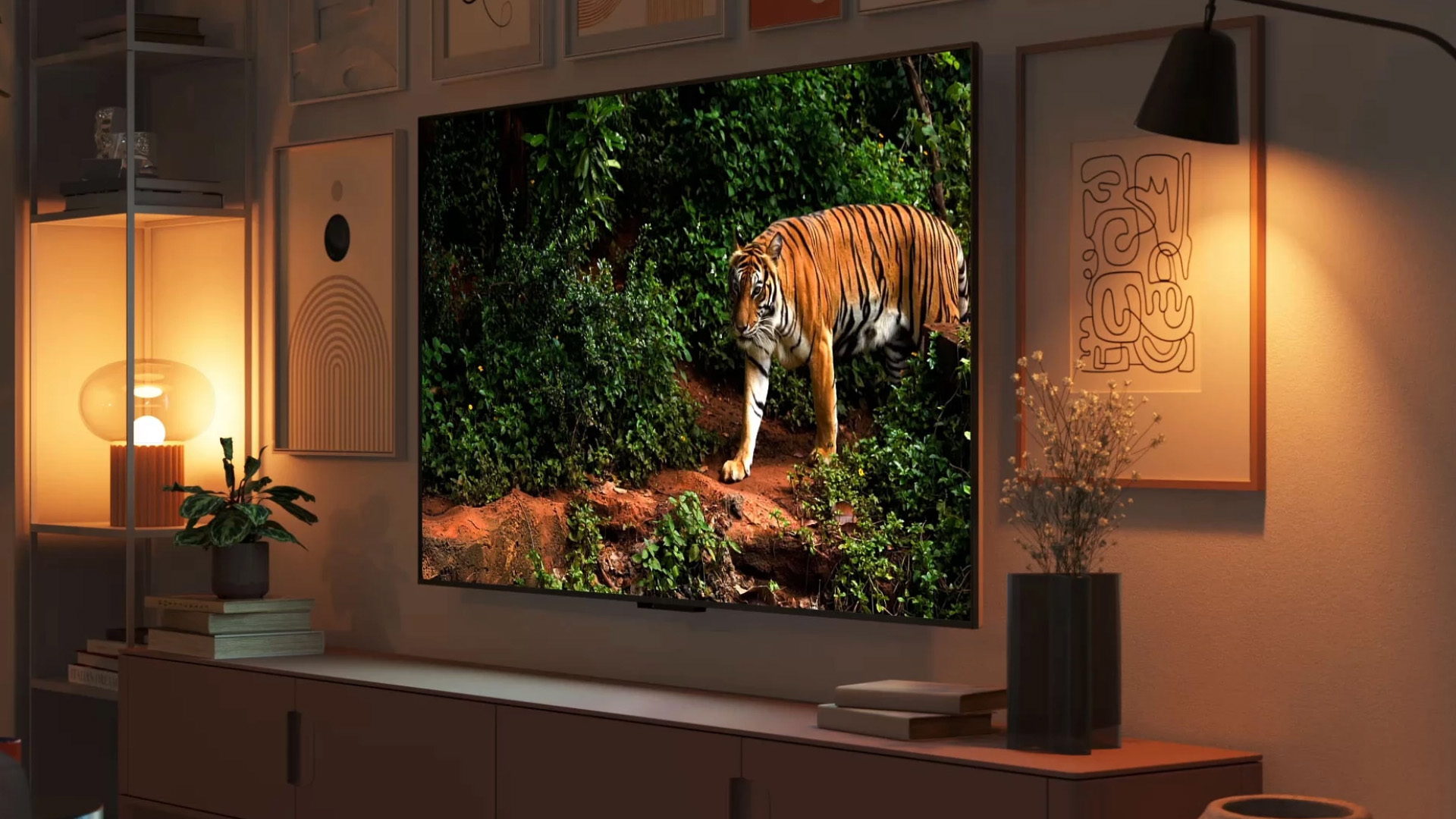

Specifications
Reasons to buy
Reasons to avoid
Amazon is now starting to get into its stride when it comes to its own TVs, and the Mini-LED 4K television we have here is evidence of that. It's a serious upgrade over the first generation of sets that Amazon put out, and it could be the best pick overall when it's discounted in Amazon sales.
Our Amazon Fire TV Omni Mini-LED QLED 4K review talks about "dynamic picture quality" and "candy colours", and we also said it was a "big step forward" for Amazon. Contrast and HDR are both handled very well, and while the audio and gaming support could be better, it's excellent value for money.
This being Amazon, you can pick up the Amazon Fire TV Omni at a very respectable price even before it goes on sale – and you may well wonder why you would pay more. The Fire TV software on Amazon's TVs and streaming devices is solid too, giving you easy access to a host of content.
Best sounding
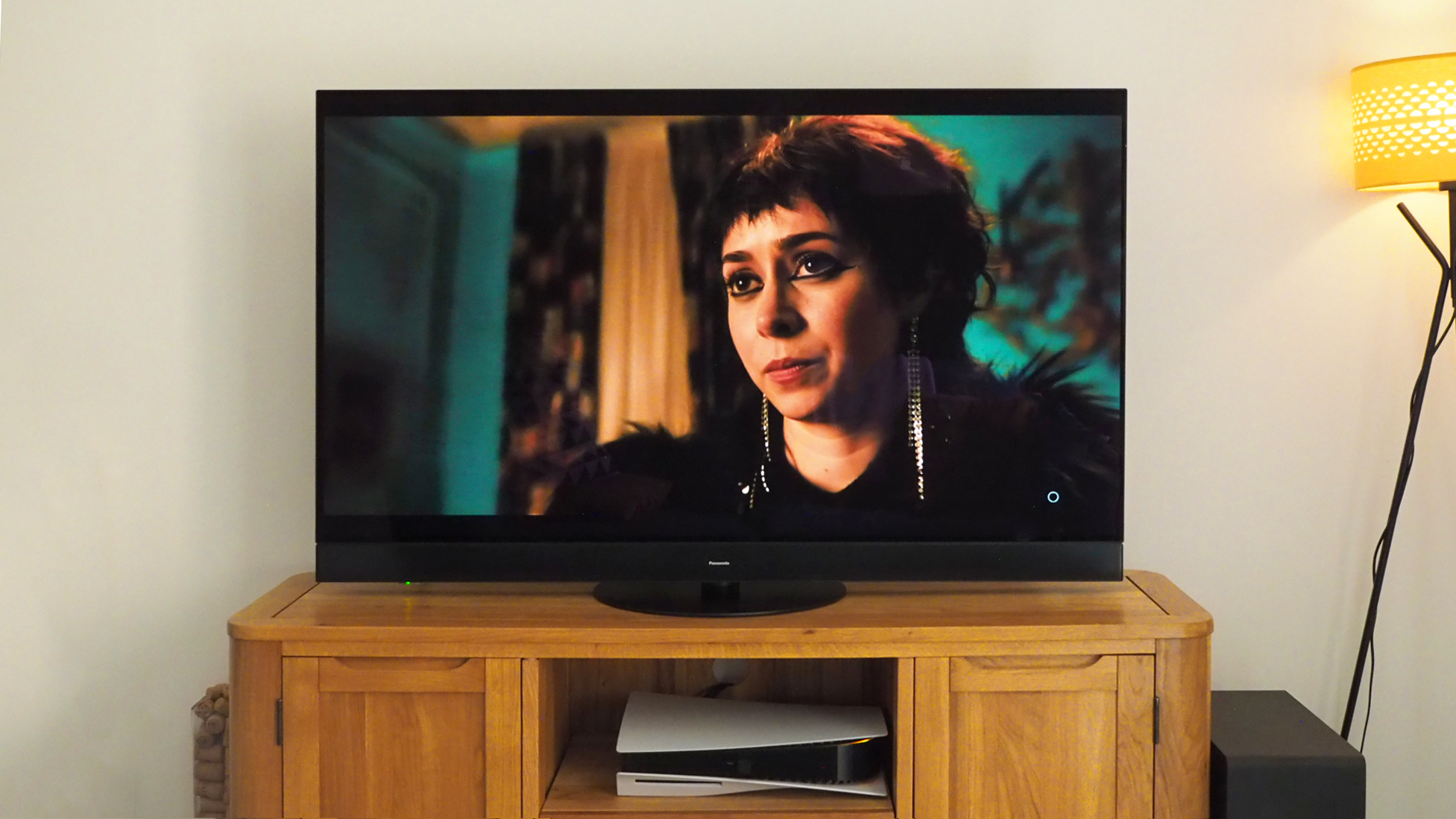
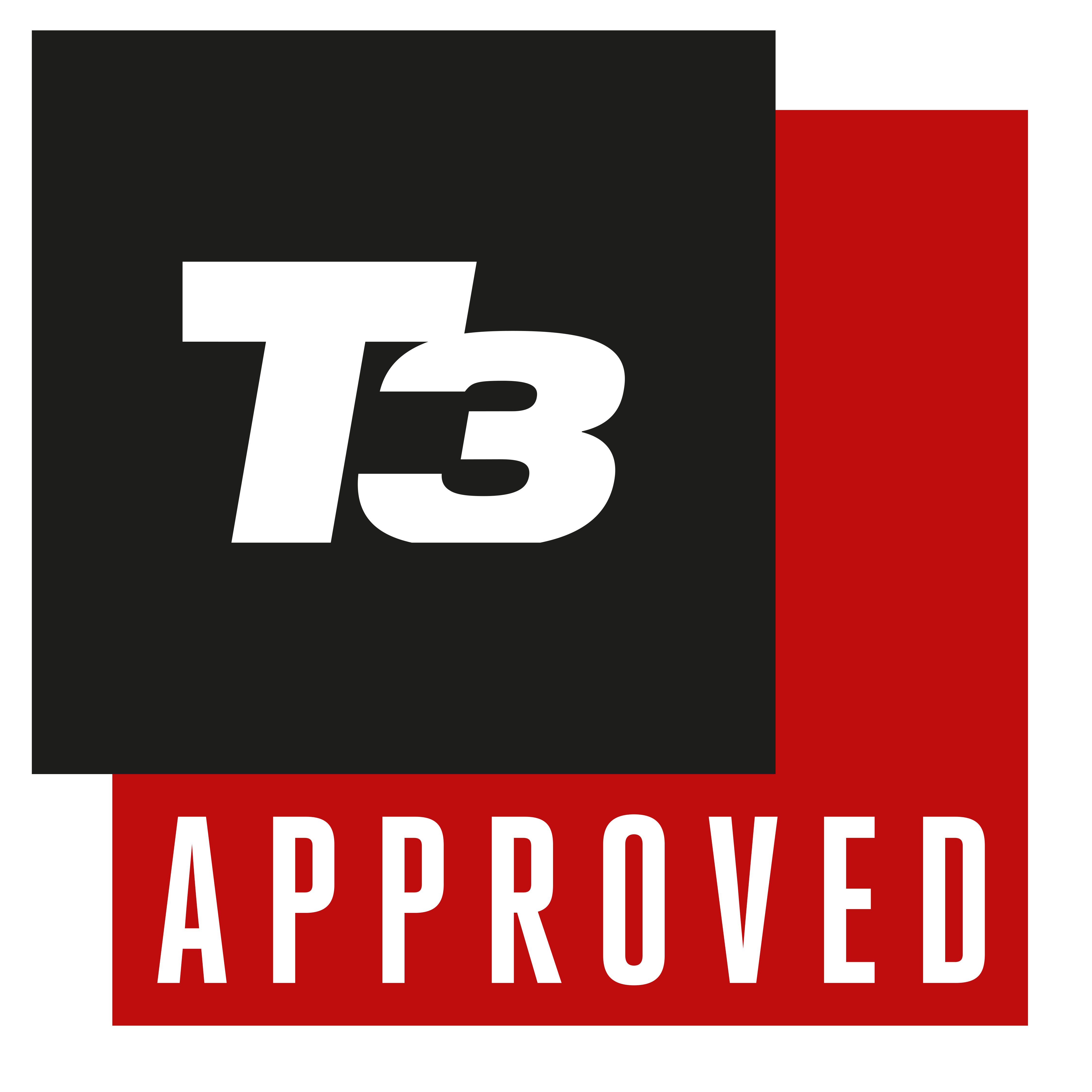
Specifications
Reasons to buy
Reasons to avoid
In our Panasonic Z95A review, we gave this TV a full five stars out of five, so you know it's a great option: we talked about its "rip-roaring picture quality" and superior black-level nuance, but it's the sound quality that really stands out against its rivals.
This set offers an integrated 5.1.2-channel array which is capable of handling 3D audio, with some tuning expertise added by Technics. We don't say this often, but this is one television that you're not going to have to consult our best soundbars guide for.
It's a relatively expensive set, and we're not really fans of the adverts that come with the Amazon Fire TV software – but you can always connect an extra streaming device of course. When it comes to picture and audio quality, its in their amongst the best.
Best with Ambilight
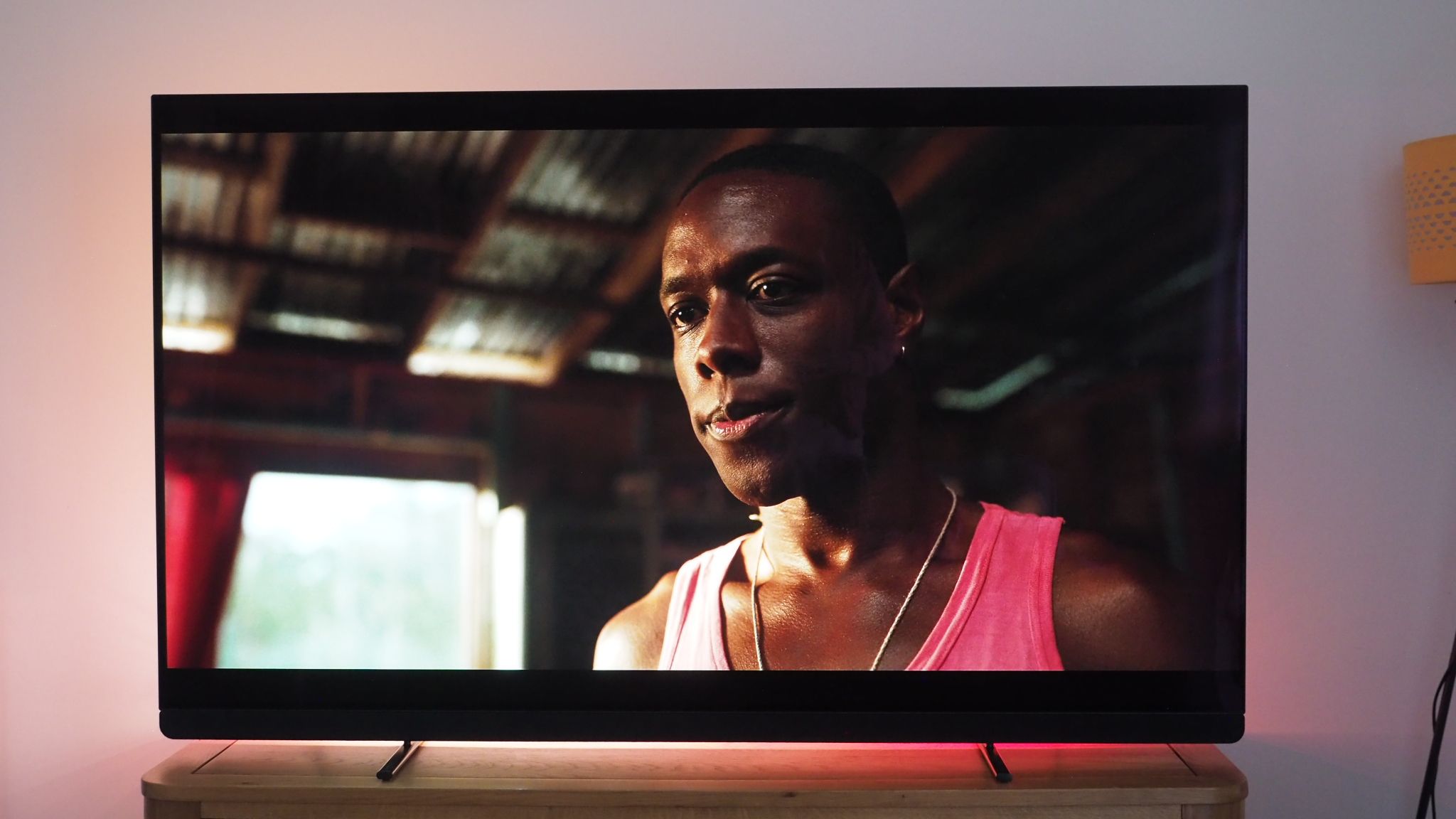

Specifications
Reasons to buy
Reasons to avoid
There are numerous reasons why this TV stands out and is an easy pick for our list of the best televisions, starting with the quality of that OLED picture: bright and bold and very impressive. It also offers a sound experience that'll make you forget all about having to buy a soundbar.
What we like most here though is the Ambilight system, which creates subtle background lighting around the sides of your TV, based on what's happening on screen. It can really add a special touch of extra immersion, and the Philips OLED 909 handles it better than most.
In our Philips OLED 909 review, we said that this TV "sounds like a dream – and looks like one too", which is why we awarded it full marks in our star rating system. No matter what the content source, you're going to get seriously great audio and visuals from this television.
Best under £1,000
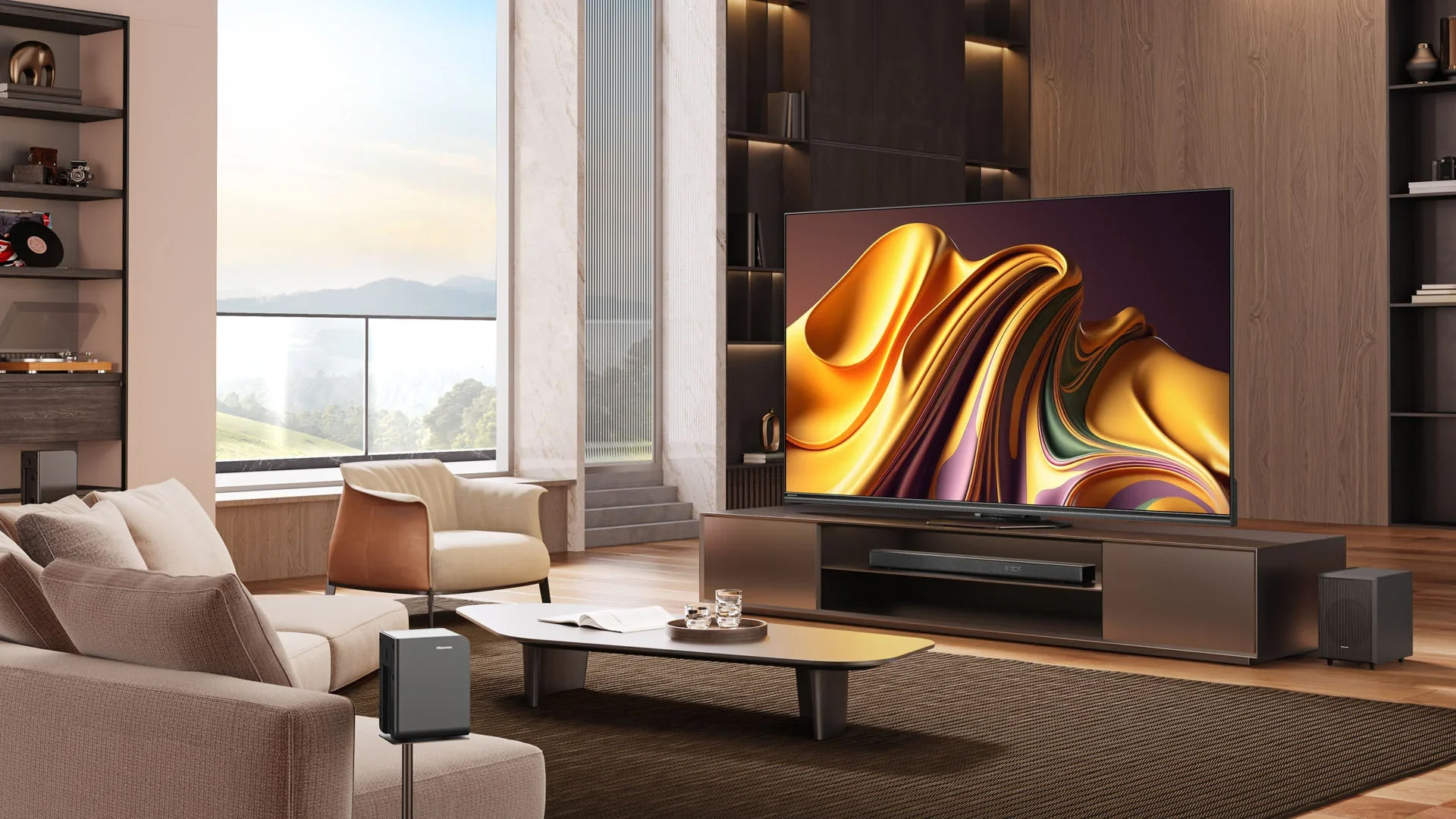

Specifications
Reasons to buy
Reasons to avoid
Our Hisense U8N review will tell you how impressed we are by this Mini-LED TV: we described it as "brilliantly bright and brilliantly priced", which gives you some idea of the strengths of this particular set. It's just about the best you can get with a starting price of under £1,000 in the UK.
The 3,000 nits of peak brightness and 1,600 individual dimming zones on offer here make for a picture that's dazzling, and it really doesn't matter too much what content you're watching: the Hisense U8N is pretty adept when it comes to upscaling lower-quality content to 4K.
While only two of the four HDMI ports are the full fat, full speed HDMI 2.1 versions, you can get good gaming performance too – as long as you use those HDMI 2.1 ports. The only real downside is rather average sound quality, but even that's not too bad, and overall it's a fantastic package.
Best premium big screen
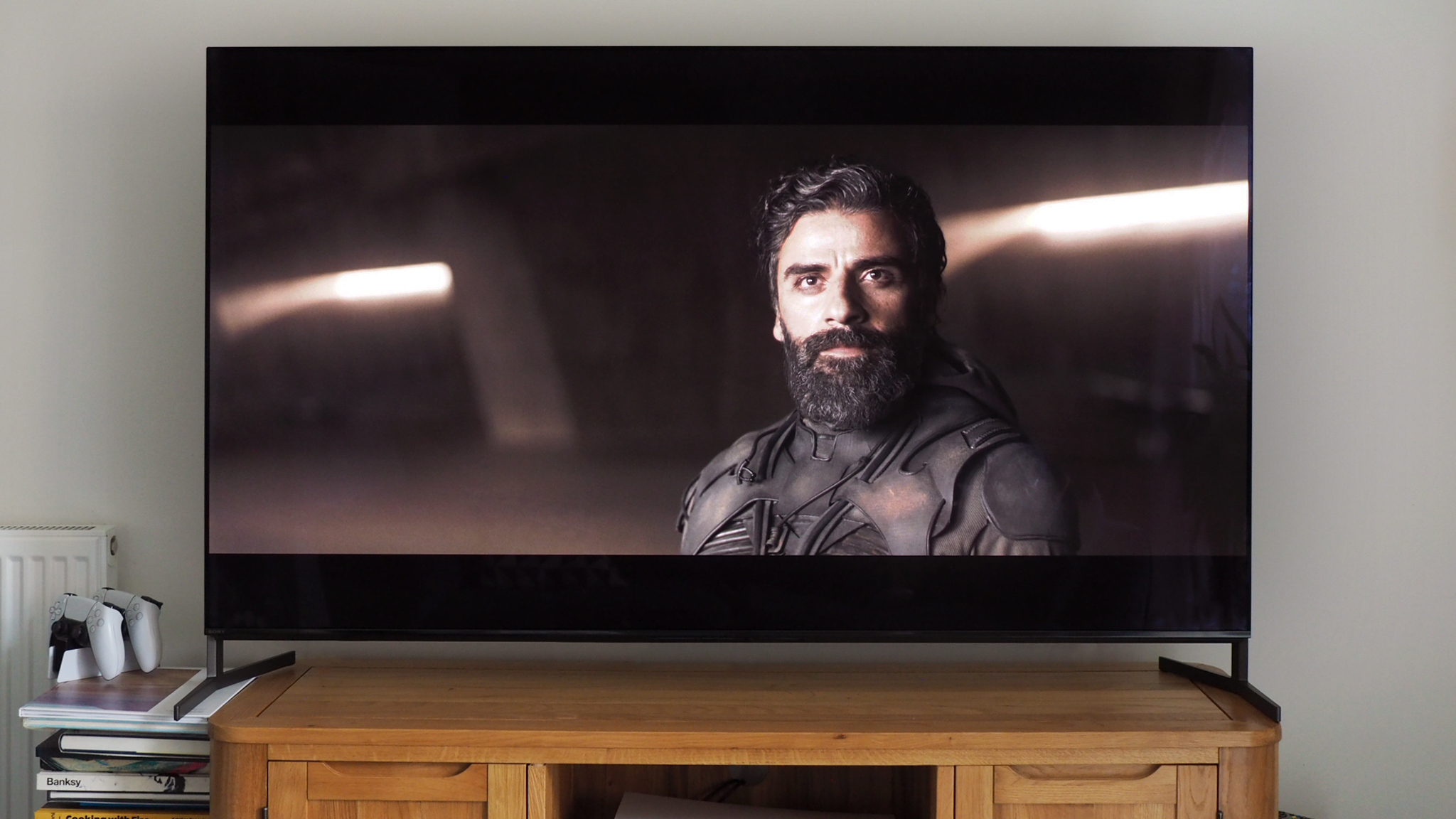

Specifications
Reasons to buy
Reasons to avoid
There's plenty in the positives column when it comes to the Sony A95L, including a top-class OLED panel, really impressive built-in sound quality, and support for HDMI 2.1 (though only on two of the four ports). It's also a breeze to set up, giving you great pictures out of the box.
In our Sony A95L review, we called it a winner in terms of its "sheer picture clarity, overall brightness, and motion processing authenticity". It's absolutely one of the more expensive television sets on the market at the moment, but if you have the cash to spare you won't be disappointed.
We also like the design of this television, with one caveat: the stands are rather oddly fixed at the edges of the screen, so you're going to need a surface as wide as the actual set. As usual with Sony TVs, the software offering is Google TV, which continues to get better and better too.
Best for bright rooms
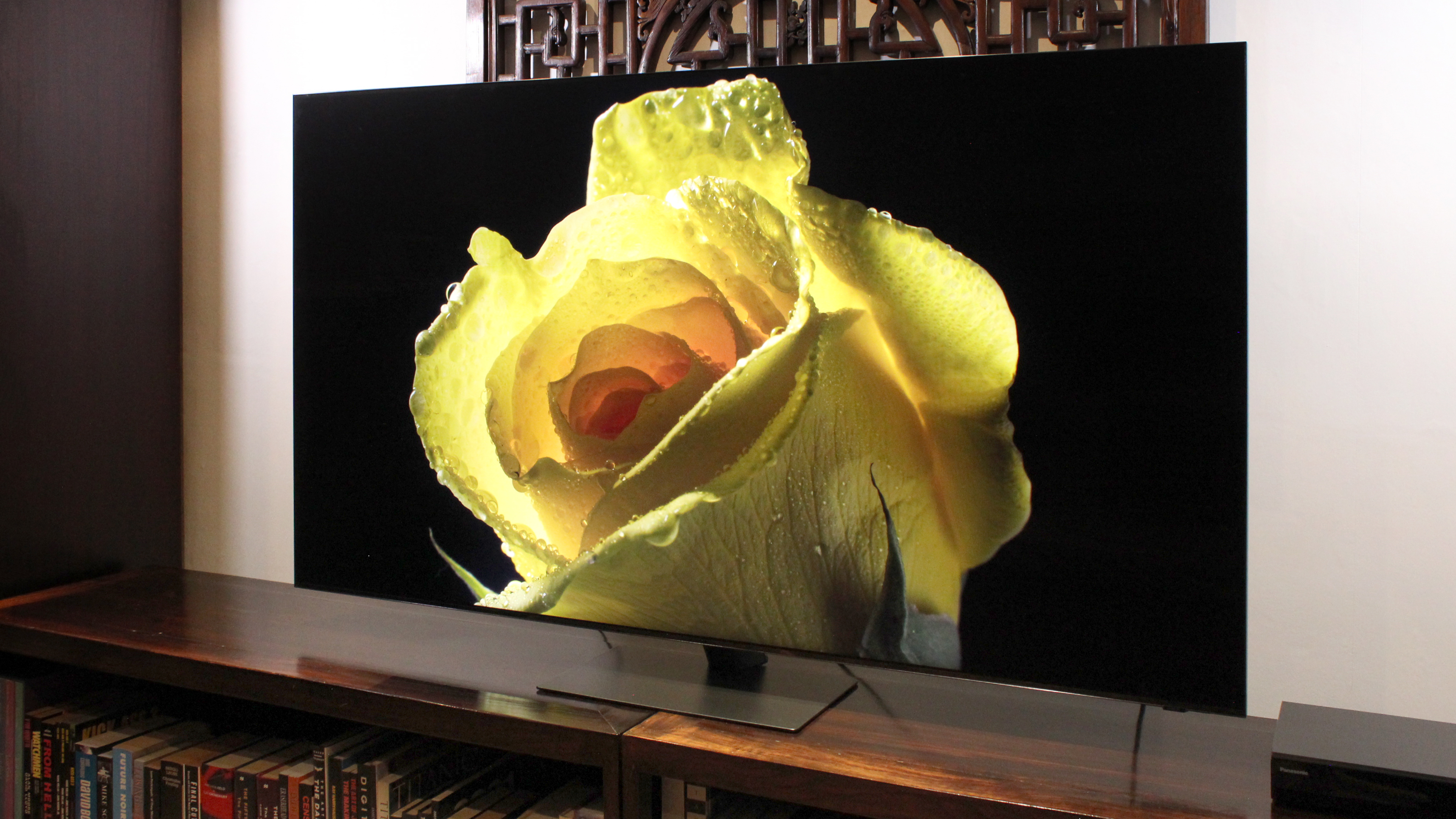

Specifications
Reasons to buy
Reasons to avoid
If you want to read praise heaped upon a television set, go and check out our Samsung QN95D review. This flagship-level TV from the experts at Samsung is a unit that's going to impress just about anyone who sits in front of it, and it comes highly recommended from the T3 team.
As we said in our review: "The Samsung QN95D adds state-of-the-art processing to its Mini-LED backlight and class-leading local dimming to deliver a performance that looks and sounds stunning." Words such as "elegant design" and "serious smarts" are also thrown around in that review.
Add in excellent gaming features as well, plus a level of build and design quality that's clearly a cut above the average, and you've got a very good TV indeed. Thanks to its superior brightness performance, we've named it the best TV for bright rooms, but it's also a great all-round package.
Best for subscribers
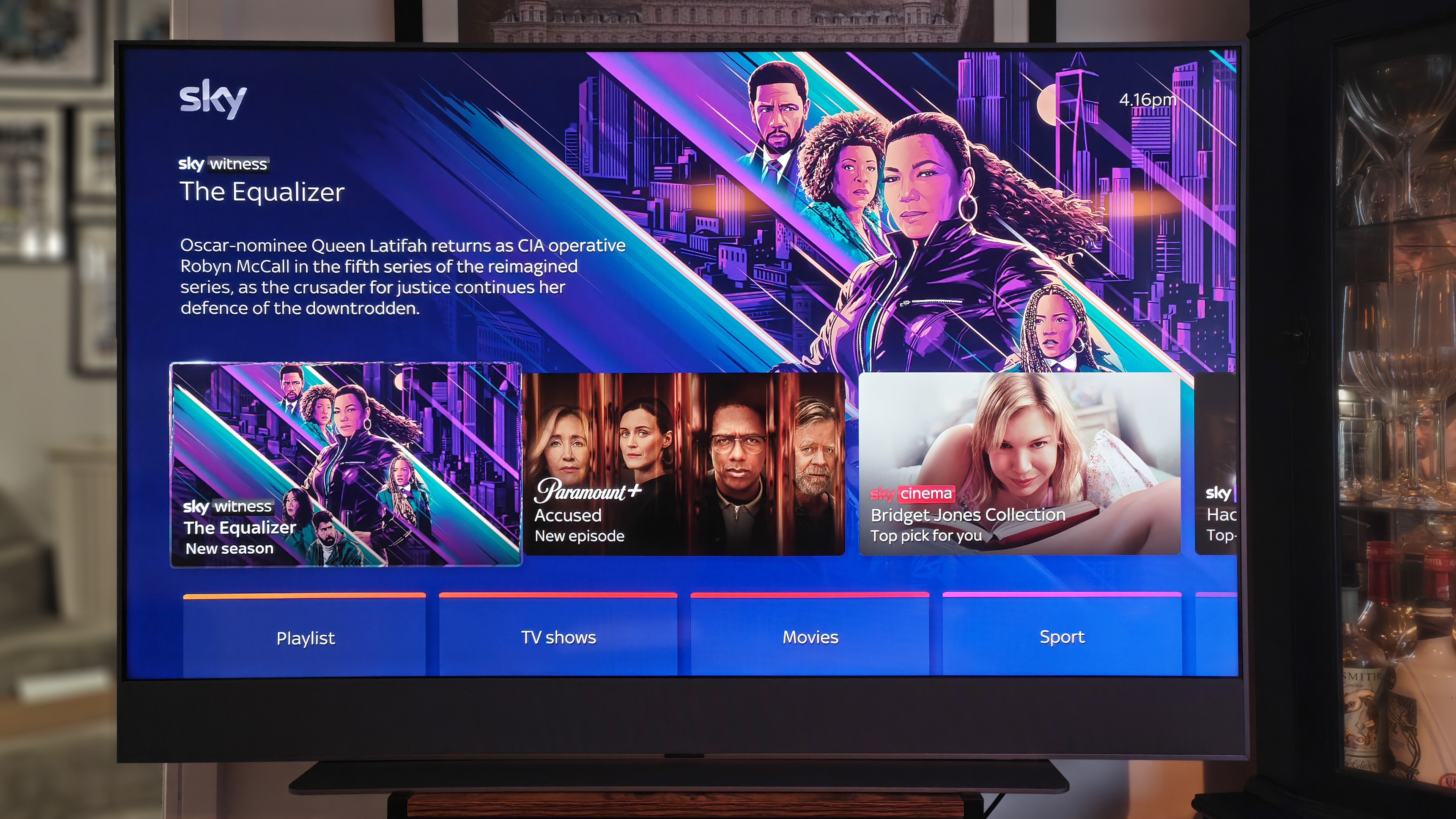

Specifications
Reasons to buy
Reasons to avoid
As you'll gather from our Sky Glass (2025) review, this is quite an unusual proposition as far as TVs go: you get the TV, but you also get a Sky subscription included, with everything delivered over the internet (so no need to get a dish). It's potentially the perfect TV for Sky subscribers.
"There's a monthly cost, no big up-front payment (unless that's your preference), and you can pick and choose which channel 'packs' you add on to the package too," we wrote in that review, while also praising how straightforward it was to set up the whole system and all your channels.
Okay, it doesn't offer the very best in terms of picture quality, sound, or gaming features, but it gets pretty close in all the important areas that matter. If you're not already a Sky subscriber, it's worth having a look at the latest bundles, because there's a lot of content on offer.
Best on sale
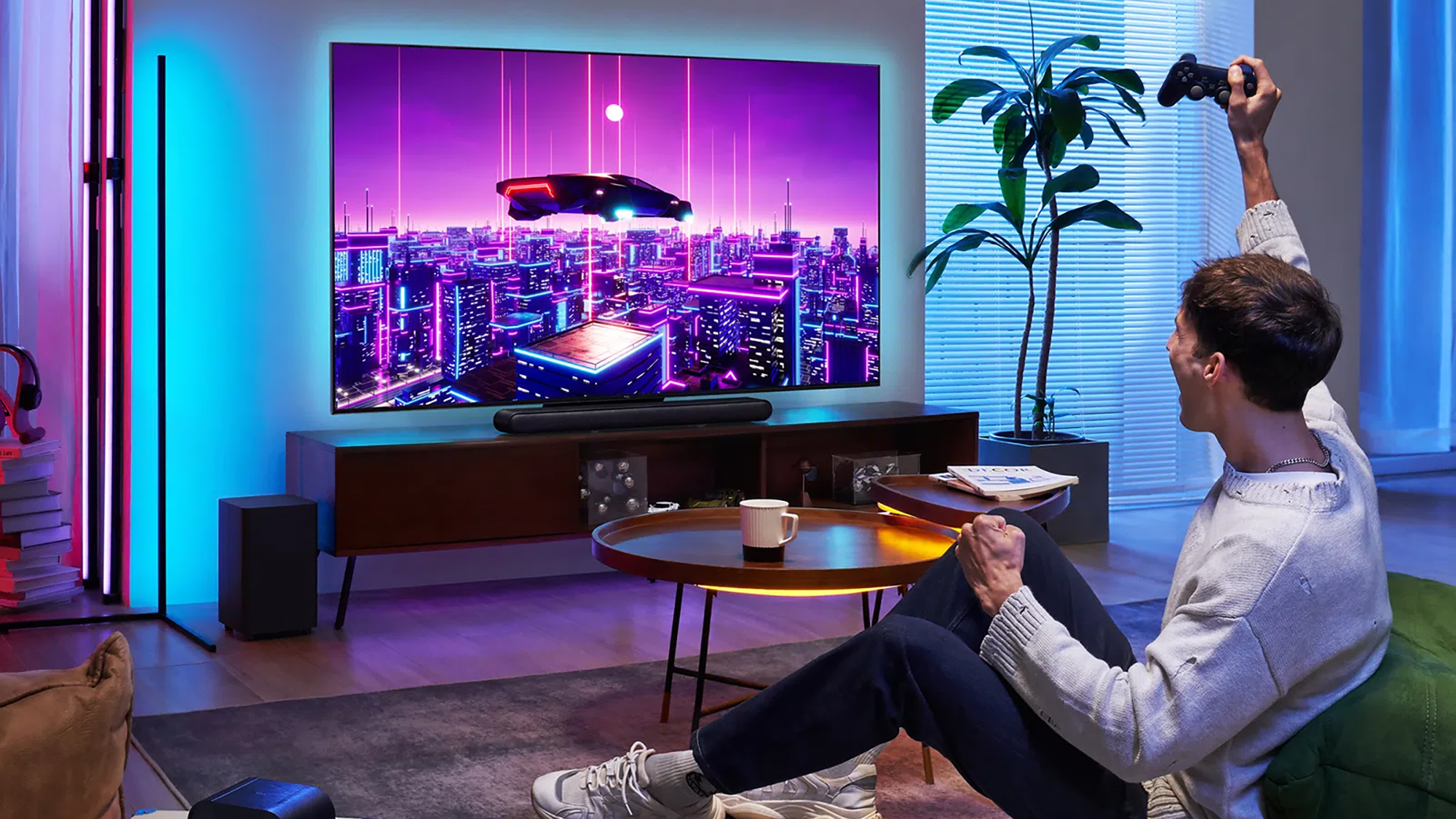

Specifications
Reasons to buy
Reasons to avoid
If value's what you're after first and foremost, then the TCL C805 might be just what you're looking for: it has plenty of appealing features, but it's also a set that tends to be heavily discounted to particularly low prices whenever retailer sales come around.
The low prices don't mean that you're getting a sub-standard set either. You get four HDMI 2.1 ports for example, as well as support for the four big HDR standards. There's also Google TV on board here, which is an impressively versatile smart TV platform.
For more details, head to our TCL C805 review, where we talked about the television being "a big screen with a big specification at an admirably unbig price". It's not without its flaws of course, but this is a set that ensures your money goes a long way.
Best design


Specifications
Reasons to buy
Reasons to avoid
Samsung's The Frame is a rather unique bit of hardware, because it's designed to be used as a digital art display when you're not watching any actual TV on it. Knowing the double duty that this set can do for you should give you some idea as to whether it's the television for you.
When you don't have any digital artwork on the display, this is a very capable television set. We like the pictures produced by Samsung's QLED panel, which has a matte finish to reduce distractions. Clarity and dynamics are excellent, while the audio is good enough to do without a soundbar.
Have a read through our Samsung The Frame (2023) review if you're tempted by this upgrade. "Choose from a variety of painterly optional bezels, subscribe to Samsung's Art Store service, and you'll have a virtual gallery in your home whenever you want one," we wrote in the review.
Best 8K
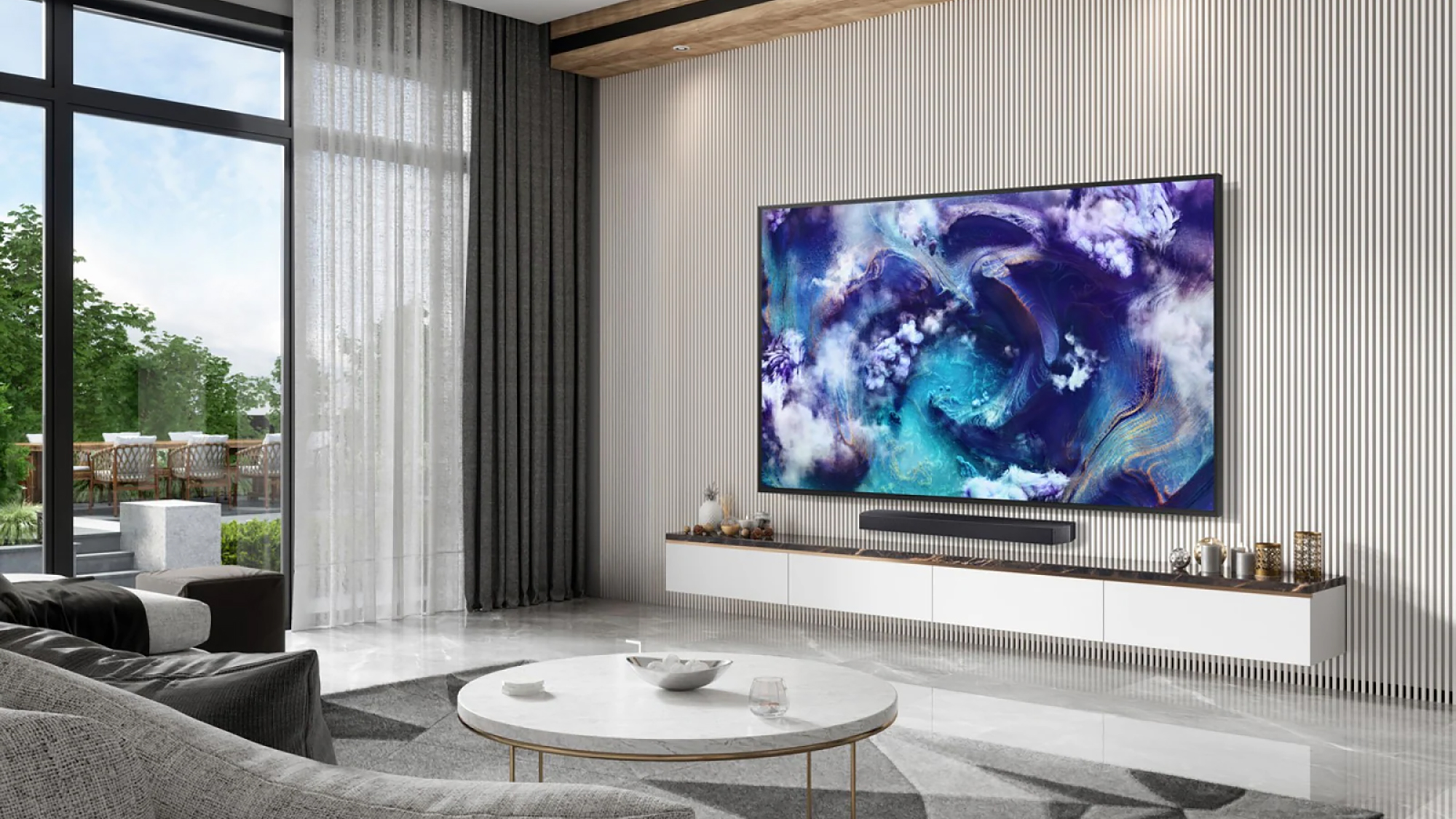

12. Samsung QN900F
Our expert review:
Specifications
Reasons to buy
Reasons to avoid
It's fair to say that 4K TVs have been around for a while now, and so you might be thinking about making the jump to 8K – and if you are, then the Samsung QN900F could be the ideal pick for you. It handles 8K pictures brilliantly well, as well as content in lower resolutions too.
Connection-wise this is a top-notch television set, with four HDMI 2.1 ports to play around with. That means means there's plenty of scope for streaming boxes, gaming consoles, and the like – there's enough space for everything, so you can make full use of all of those pixels.
Now with so many pixels to display and such big sizes to accommodate, you are of course going to have to pay a substantial amount of money to get hold of the Samsung QN900F. But given everything you get in return, we think it's an investment well worth considering.
Honourable Mentions
Samsung S90F: this is a simply superb set from Samsung, which serves up bright and detailed pictures, and it works just as well for gaming as it does for movies and sports. You won't be disappointed.
LG OLED M4: the M4 gives you all the usual OLED picture quality you'd expect from LG, as well as a wireless connectivity configuration – all you need to plug in directly is the power cable.
TCL C855: another excellently priced model from TCL, the 855 is available in a decent variety of sizes, bringing with it impressive images and HDR performance, plus appealing gaming features.
Sony X85L: get the Sony KD-X85L installed in your living room (or anywhere else), and you're not going to have any complaints about the quality of the visuals here, or the cost of the television.
Philips OLED 959: another top-tier Ambilight set from Philips, giving you an immersive lighting experience along with everything else (fantastic OLED picture quality, a fine sound system, and more).
LG OLED C5: a mid-range marvel from LG, which provides the perfect balance between a reasonable price point and a more than reasonable OLED panel. It has a design that stands out, too.
How we test
As said in T3's extensive How We Test page: our TV testing can "only be achieved by truly living with a product". That's paramount for testing our TVs, in order to be at one with the way they function, react to changing lighting conditions, or different modes. We'll find high points and any quirks that mark these sets down.
In addition, however, it's key to also measure TVs using tools so we can gauge whether their brightness delivers as potently as is claimed. That way we know what the brightest and most dynamic sets are. And, of course, there are all manner of features – as outlined in the sections above – to take on board, from the panel technology and backlight, to the high dynamic range compatibility, and the sound quality.
Once we've pulled together all our testing and real-world living, we're then able to contextualise how a TV fits into the broader market and award it a score, with the lucrative T3 5-star badge the ultimate accolade awarded to only the very best tellies available.
How to choose
Shortlisting your next television can be a complicated business, but a few simple rules of thumb will help.
Besides resolution – so usually 4K but maybe 8K – screen size is a key consideration. To see incremental differences in resolution, you’ll probably need to buy a bigger screen than you had previously, or move your seating closer.
Long story short: think big, then buy bigger.
Counter intuitive it may well be, but ultra-large 8K screens are perfect for smaller rooms, if you want to really see every drop of detail.
Then there’s viewing environment. If you tend to watch in high ambient lighting, or during daytime, a QLED screen will typically serve you better than OLED. If you prefer to watch with low or no lighting, an OLED will deliver greater subjective contrast and shadow detail.
Smart platforms are no longer a decisive reason to buy. All TVs are smart these days, and the choice of apps ubiquitous – focus on image quality, price and any other features you're keen on. You can always plug in an extra streaming device if you need to.
FAQs
It's important to do your research if you're investing in one of the best TVs on the market, and it's likely that you'll come across a lot of different terms and have quite a few questions about buying choices. These are some of the key answers you're going to need.
Which display tech is best?
These are the three main types of TV tech you'll see mentioned in the guide above, but manufacturers will often come up with their own names and terms, so double-check exactly what you're getting.
It's also worth bearing in mind that none of these options are sub-standard: they're all improving all the time, and each one is capable of producing fantastic-looking visuals for your next television.
OLED: OLED TVs have individually illuminated pixels, which means beautiful colour, high contrast, and excellent blacks. They typically cost more, but they're the pinnacle of TV pane; tech.
QLED: Quantum Dot technology uses backlights across all pixels, which usually means brighter panels and richer colours. Most of the time, QLED TVs can also be relied on for top-tier motion handling.
Mini-LED: Similar to QLEDs, Mini-LED TVs use backlights behind the pixels, but they're usually smaller (hence the mini name). In theory, this ensures more precise control over how the screen is lit up.
What should I look for?
Here are some of the things we look for when we review a TV screen, so you should, too...
Contrast: Bright whites shouldn't have any signs of green, pink or blue in them, while blacks should look solid and not washed out, grey, green or blue.
Colours: look at how bright and solid they are, and how noiseless their edges are. Also look at how 'dotty' richly saturated areas are and how natural skin looks, especially in dim scenes.
Fine detail: how much texture does the screen give? Does a tree look like a green lump, or can you see the individual leaves?
Edges: check for ghosting, bright halos and jaggedness, especially around curves.
Motion: check moving objects and quick camera pans for smearing or blurring, trailing, jerkiness and fizzing dotty noise.
Image artefacts: look for blockiness, colour bands, grain, smearing, dot crawl – anything that looks like it's added by the TV's picture processing engine.
What about sound?
To provide the best audio to complement the pictures, your TV should be hooked up to a separate audio system, be it soundbar or home cinema separates, but this isn't always an option. So, here's what we listen for when testing a TV's speakers:
Bass: deep, rounded rumbles that don't cause the set to rattle or speakers to distort cramp or overwhelm the rest of the sound – but that expand when needed.
Vocals: voices should sound open, rich and clear, not boxed in, nasal or thin.
Trebles: treble effects should sound clean, rounded and smooth in loud scenes and shouldn't dominate the soundstage.
Soundstage width/depth: a good TV should throw the sound away from the TV, to the sides, forward and back, to give an extra dimension to what's on screen, without losing any coherence.
Reviewer Panel

It's part of my job here at T3 to test the best TVs, so I'm often hosting a brand new set in my living room, treating it as if it's my own, to gauge how impressive its sound, picture quality and features are. It's this first-hand experience and knowledge that inputs into this best TV guide.
Simon brings a wealth of experience with him when it comes to reviewing TVs, and that comes across in the way he writes about them. There isn't much he doesn't know about the ins and outs of audio/visual hardware, and that makes him worth listening to when it comes to the best TVs.

Steve hasn't just been reviewing TVs for years and years – he's also a professional calibrator, so he knows how these devices should be set up to get the very best pictures and sounds for you. You'll find his reviews come with all of the level of detail and the expert insight that you need.

With more than 25 years in the business, Steve May certainly knows what he's writing about when it comes to audio and visual kit – in fact, he set up an entire magazine dedicated to the technology. You can rely on his TV reviews to be well informed, well balanced, and very helpful.
Get all the latest news, reviews, deals and buying guides on gorgeous tech, home and active products from the T3 experts

Mike is T3's Tech Editor. He's been writing about consumer technology for 15 years and his beat covers phones – of which he's seen hundreds of handsets over the years – laptops, gaming, TV & audio, and more. There's little consumer tech he's not had a hand at trying, and with extensive commissioning and editing experience, he knows the industry inside out. As the former Reviews Editor at Pocket-lint for 10 years where he furthered his knowledge and expertise, whilst writing about literally thousands of products, he's also provided work for publications such as Wired, The Guardian, Metro, and more.